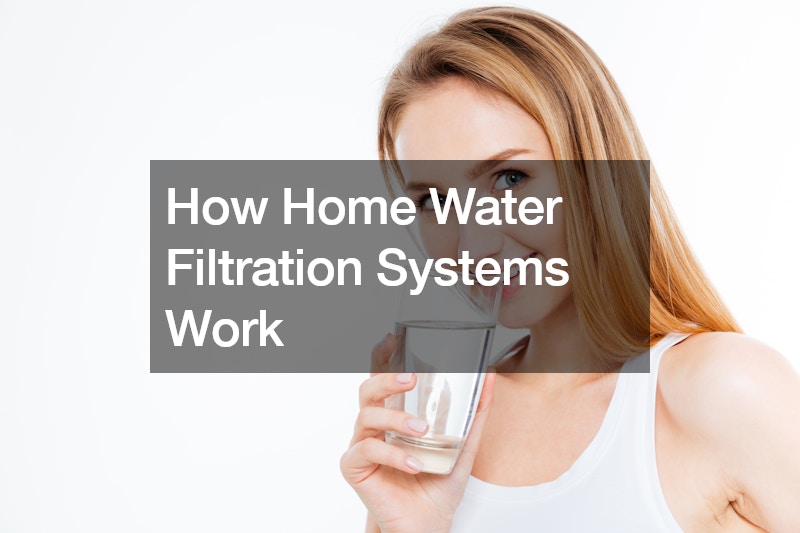
Access to clean and safe drinking water is essential for health and well-being. While municipal water treatment facilities provide treated water, contaminants can still enter the water supply through old pipes, industrial pollutants, and agricultural runoff. Home water filtration systems are a practical solution for ensuring the water you and your family consume is of the highest quality. Here’s a detailed look at how these systems work and the benefits they offer.
The Basics of Water Filtration
Water filtration is the process of removing impurities and contaminants from water to make it safe for drinking and other household uses. Home water filtration systems can range from simple pitcher filters to complex multi-stage systems that purify water at the point of entry into your home.
Types of Home Water Filtration Systems
Activated Carbon Filters
Activated carbon filters are among the most common types of home water filtration systems. They absorb contaminants onto the surface of the carbon particles. These filters are highly effective at removing chlorine, volatile organic compounds (VOCs), and other chemicals that can affect the taste and odor of water. Activated carbon filters can be found in various forms, including countertop units, under-sink systems, and pitcher filters.
Reverse Osmosis (RO) Systems
Reverse osmosis systems are highly effective at removing a wide range of contaminants, including heavy metals, bacteria, viruses, and dissolved salts. The process involves forcing water through a semi-permeable membrane, which allows only water molecules to pass through while trapping impurities. RO systems typically include multiple stages of filtration, such as pre-filters for sediment and carbon filters to remove chlorine, before the water reaches the RO membrane.
UV Purification Systems
Ultraviolet (UV) purification systems use UV light to kill bacteria, viruses, and other microorganisms in the water. This method is chemical-free and does not alter the taste or odor of the water. UV purification is often used in conjunction with other filtration methods to provide comprehensive protection against biological contaminants.
Ion Exchange Systems
Ion exchange systems are commonly used for water softening. They work by exchanging ions of hardness minerals, such as calcium and magnesium, with sodium or potassium ions. This process helps prevent scale buildup in pipes and appliances, improving the efficiency and lifespan of household systems. Ion exchange is often integrated with other filtration methods to provide a complete solution for water quality issues.
How These Systems Work Together
Many home water filtration systems combine multiple filtration methods to provide comprehensive protection against a wide range of contaminants. For example, a typical under-sink RO system might include a sediment filter to remove large particles, an activated carbon filter to reduce chlorine and organic compounds, and a reverse osmosis membrane to remove dissolved salts and heavy metals. Some systems also include a final carbon filter or UV purifier to ensure the water is safe and clean.
Benefits of Home Water Filtration Systems
Improved Water Quality: Home water filtration systems effectively remove contaminants that can affect the taste, odor, and safety of your water. This ensures that you have access to clean, great-tasting water at all times.
Health Benefits: By removing harmful substances like lead, chlorine, and microbial contaminants, water filtration systems help protect your health and reduce the risk of waterborne illnesses.
Cost Savings: Investing in a home water filtration system can save you money in the long run by reducing the need for bottled water and minimizing wear and tear on appliances caused by hard water.
Environmental Impact: Using a home water filtration system reduces the reliance on single-use plastic bottles, helping to decrease plastic waste and its impact on the environment.
Conclusion
Home water filtration systems are a crucial investment for ensuring access to clean and safe drinking water. By understanding how these systems work and the benefits they provide, homeowners can make informed decisions about the best filtration solutions for their needs. Whether through activated carbon, reverse osmosis, UV purification, or ion exchange, modern water filtration technologies offer reliable and effective ways to enhance water quality and safeguard health.
.



